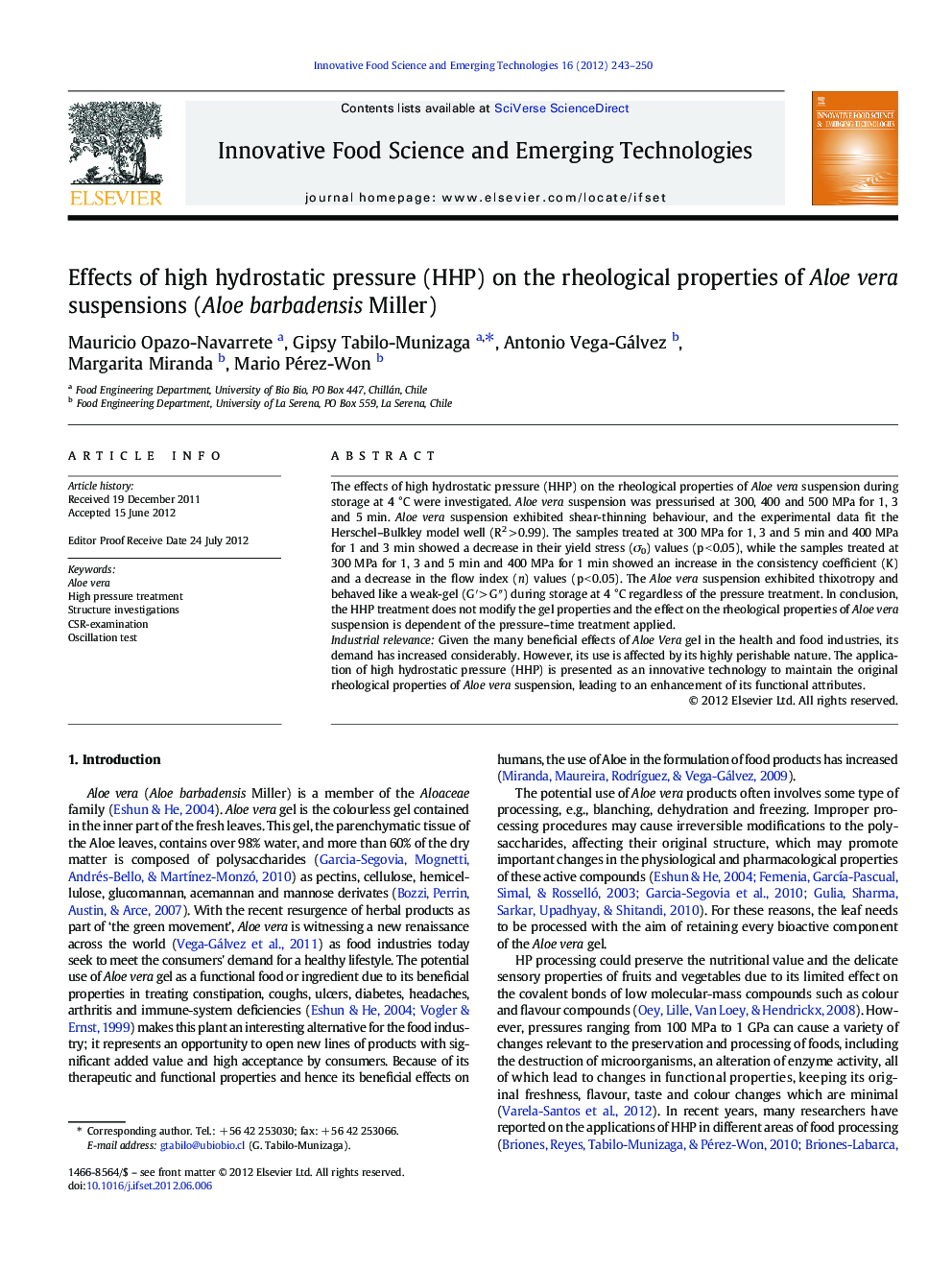| Article ID | Journal | Published Year | Pages | File Type |
|---|---|---|---|---|
| 2087164 | Innovative Food Science & Emerging Technologies | 2012 | 8 Pages |
The effects of high hydrostatic pressure (HHP) on the rheological properties of Aloe vera suspension during storage at 4 °C were investigated. Aloe vera suspension was pressurised at 300, 400 and 500 MPa for 1, 3 and 5 min. Aloe vera suspension exhibited shear-thinning behaviour, and the experimental data fit the Herschel–Bulkley model well (R2 > 0.99). The samples treated at 300 MPa for 1, 3 and 5 min and 400 MPa for 1 and 3 min showed a decrease in their yield stress (σ0) values (p < 0.05), while the samples treated at 300 MPa for 1, 3 and 5 min and 400 MPa for 1 min showed an increase in the consistency coefficient (K) and a decrease in the flow index (n) values (p < 0.05). The Aloe vera suspension exhibited thixotropy and behaved like a weak-gel (G′ > G″) during storage at 4 °C regardless of the pressure treatment. In conclusion, the HHP treatment does not modify the gel properties and the effect on the rheological properties of Aloe vera suspension is dependent of the pressure–time treatment applied.Industrial relevanceGiven the many beneficial effects of Aloe Vera gel in the health and food industries, its demand has increased considerably. However, its use is affected by its highly perishable nature. The application of high hydrostatic pressure (HHP) is presented as an innovative technology to maintain the original rheological properties of Aloe vera suspension, leading to an enhancement of its functional attributes.
► Aloe vera gel exhibits a thixotropic response and non-Newtonian behaviour. ►Rheological properties of Aloe vera suspension depends on pressure-time treatment.► Aloe vera suspension exhibits a weak-gel like behaviour (G′ > G″).
